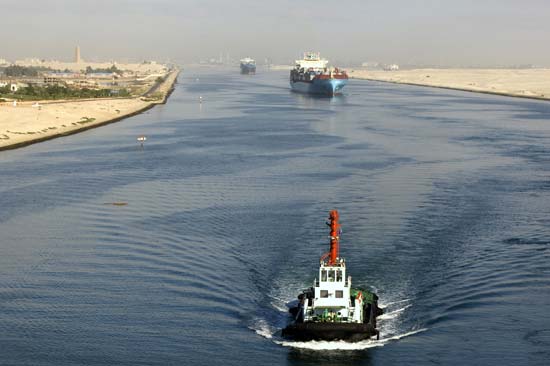Egypt is developing a major gold mining city in the Suez Canal with the hopes of boosting a centuries-long industry and luring billions of dollars in foreign investments.
Wael Soliman, the spokesman for the city project said that the city will put Egypt on the world gold map as well as make a breakthrough in the country’s gold mining industry. Moreover, upon completion the city will be Africa’s major and only gateway where manufacturers can trade in and export gold.
The gold city, according to Soliman, will be the first of its kind in the world and will be built on an area of 130,000 sqm in the Suez Canal Economic Zone located in the western Suez Canal, with the first phase covering an area of 20,000 sqm.
The data also indicated that the city would include 500 workshops and small factories in addition to a gold refinery and an academy that offers training programs in all industries related to gold and other minerals. As part of the project, foreign gold companies would be allowed to conduct mining concessions in specific areas.
The project is projected to create 5,000 direct and indirect job opportunities for specialists, technicians, consultants and workers. It will increase the country’s gold exports with global brands and trademarks being manufactured in the specialized city. Officials say the project will take 1½ years to be completed and will cover 100% of the needs of the local market.
Nasser Fouad, the spokesman for the Suez Canal Economic Zone, said the SCZone has received offers from several Egyptian and international companies, especially from China, India and the Gulf, which are willing to invest in the city.
Last year, the Egyptian company Villard signed an agreement with Chinese Tianjin Economic-Technological Development Area to develop the industrial zone owned by the Chinese company and build the international gold city.
Egypt has a long history of gold mining that goes back to the time of the pharaohs. For decades, the industry has had great potential, but does not attract investments due to the failure of successive governments to make a match between the country’s spectacular geology and an attractive commercial framework for mining.
Egypt’s only gold-producing mine, Centamin Sukari Gold Mine, contributes a fraction of 1% to Egypt’s gross domestic product.
However, last year, the government said it seeks to boost the gold mining industry and make it contribute upward of 5% to the gross domestic product within 10 years.
In June 2015, the government also launched its first round of bidding for new mining concessions since 2009. Back then, a global gold mining boom brought a handful of first-time investors to Egypt, although many of them said the opportunities had poor commercial terms. The bid lasted until April 20.
If successful, the industry could create jobs and attract foreign currency to a faltering economy.
Egypt has substantial mineral resources, including 48m tons in tantalite (fourth largest in the world), 50m tons in coal and an estimated 6.7m ounces of gold in the Eastern Desert. The total real value of minerals mined was about $18.7m in 1986, up from $11m in 1981. Preliminary exploration in the Sinai Peninsula indicated the presence of zinc, tin, lead and copper deposits.
